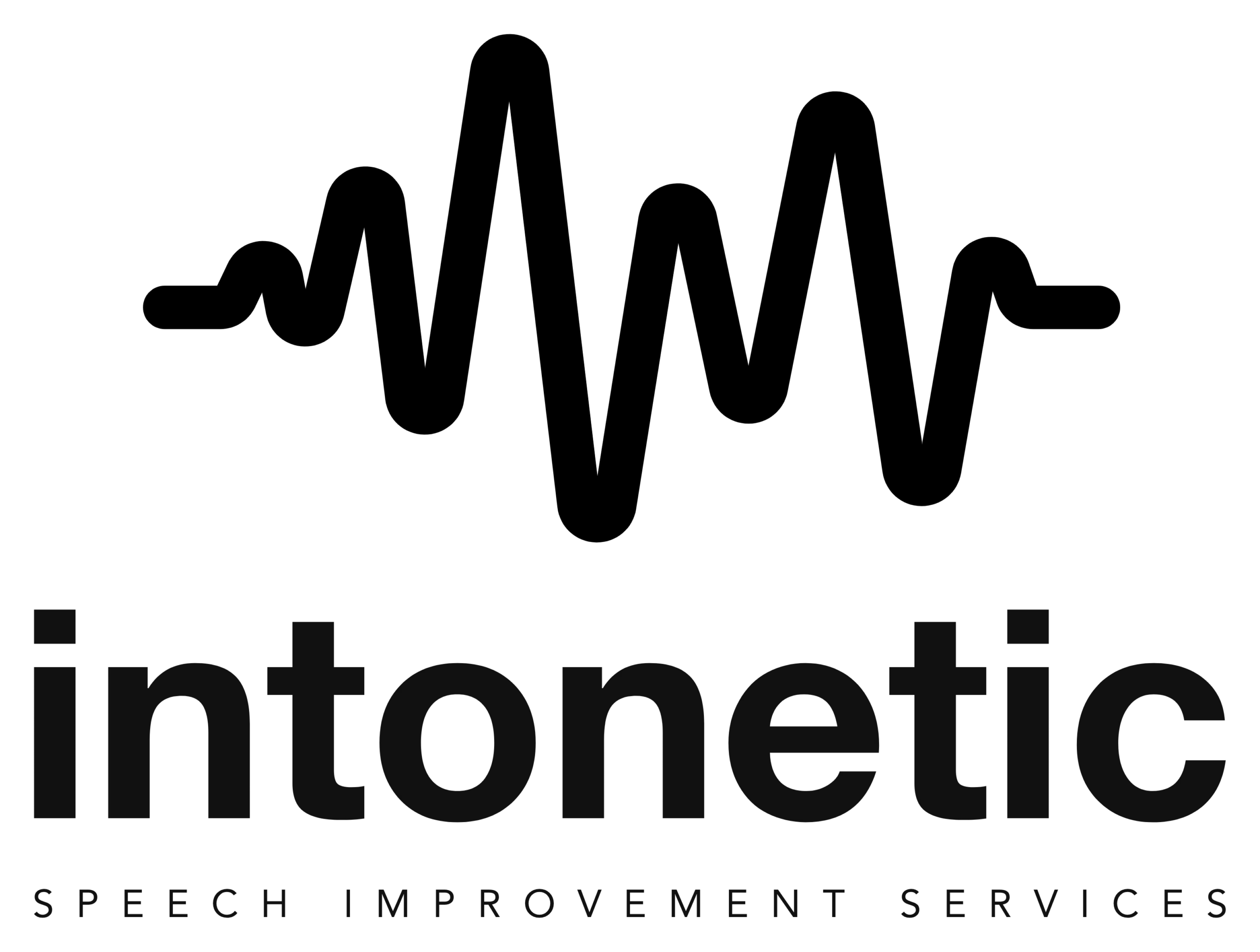Do You Really Need an Accent Coach? (The Honest Decision Guide)

Should you hire an accent coach or try to improve on your own?
Honest answer: It depends on your goals, timeline, budget, and current situation. Accent coaches accelerate progress significantly, but they’re not necessary for everyone. DIY methods work for some people, while others need professional guidance to see real results.
Let’s Figure This Out Together
You’re probably reading this because you’re tired of people asking you to repeat yourself, or maybe you’ve been thinking about accent training for months but aren’t sure if paying for a coach is worth it.
I get it. It’s a significant investment, and there are a lot of questions: Will it actually work? Is it worth the money? Can’t you just figure it out on your own?
Let me give you the honest breakdown of when accent coaching makes sense, when it doesn’t, and how to make the right decision for your specific situation.
First, Let’s Be Real About What You’re Dealing With
Before we talk about whether you need a coach, let’s honestly assess what you’re up against. Because the answer depends a lot on your starting point and where you want to go.
The “Maybe I Don’t Need Help” Scenarios
You might be able to improve on your own if:
Your accent issues are minor: Maybe people understand you fine 90% of the time, but you stumble on a few specific sounds or words. If it’s just 2-3 problem areas, you might be able to tackle those with focused self-study.
You have plenty of time: Self-study takes 3-5 times longer than working with a coach. If you’re not in a hurry and enjoy the process of figuring things out, you might prefer the DIY route.
You’re great at self-directed learning: Some people are naturally good at hearing their own mistakes, staying motivated without external accountability, and teaching themselves new skills. If that’s you, self-study might work.
Budget is a real constraint: Professional coaching typically costs $2,000-5,000 for a comprehensive program. If that’s genuinely not in your budget right now, there are self-study options that can help.
The “You Probably Need Professional Help” Scenarios
You likely need a coach if:
People regularly ask you to repeat yourself: If this happens multiple times per week in professional settings, you’re dealing with clarity issues that are harder to fix on your own.
You’ve tried self-study and plateaued: Maybe you’ve watched YouTube videos, used apps, practiced for months, but you’re not seeing the progress you need. This usually means you need professional diagnosis of what’s actually wrong.
You have a deadline: Job interview coming up? Promotion opportunity? Client presentation? If you need improvement fast, coaching is the most efficient path.
Your accent affects your confidence: If you find yourself avoiding speaking opportunities or feeling anxious about presentations, the psychological component often requires professional support.
You work in communication-heavy roles: Sales, consulting, teaching, healthcare, customer service—if talking is a big part of your job, the investment in coaching usually pays for itself quickly.
What Accent Coaches Actually Do (And What They Don’t)
Let me clear up some misconceptions about what you’re actually paying for.
What Good Coaches Do
Accurate diagnosis: They can hear specific problems you can’t hear yourself. You might think you’re saying “think” correctly, but they can tell you’re actually saying “sink” or “fink.”
Customized curriculum: Instead of generic exercises, they focus on your specific challenges. A Spanish speaker and a Chinese speaker need very different training approaches.
Real-time feedback: When you practice a sound, they can immediately tell you if you got it right or what to adjust. This feedback loop is impossible to replicate on your own.
Motivation and accountability: They keep you practicing consistently and push you when you want to give up. Most self-study attempts fail because of motivation, not lack of information.
Professional communication focus: Good coaches understand workplace communication requirements and can help you practice with real business scenarios.
Emotional support: They help you work through the psychological aspects of accent change, including confidence issues and identity concerns.
What Coaches Can’t Do
Magically eliminate your accent overnight: Anyone promising dramatic results in a few weeks is probably overselling. Real change takes months of consistent work.
Make you sound exactly like a native speaker: The goal should be clarity and confidence, not perfect mimicry. Even great coaches can’t completely erase every trace of your original accent.
Fix deep-seated confidence issues instantly: While coaching helps with accent-related confidence, if you have broader self-esteem or anxiety issues, you might need additional support.
Replace the need for practice: Coaching accelerates progress, but you still need to practice regularly. They teach you what to do, but you have to do the work.
The Self-Study Reality Check
Let’s be honest about what self-study actually looks like, because a lot of people underestimate the challenges.
Why Self-Study Often Fails
You can’t hear your own mistakes: This is the biggest problem. Your brain is wired to hear what you expect to hear, not what you actually said. You might practice a sound wrong for months without realizing it.
No structured curriculum: With so many resources available, people often jump around randomly instead of following a logical progression. You might work on advanced techniques while missing basic fundamentals.
Motivation drops fast: Without external accountability, most people lose steam after a few weeks. Life gets busy, progress feels slow, and practice stops happening consistently.
Generic advice doesn’t fit your specific needs: Your native language creates unique challenges that generic YouTube videos can’t address. You need targeted solutions.
No real-world application: Practicing sounds in isolation is different from using them in actual conversations. Most self-study programs don’t bridge that gap effectively.
When Self-Study Might Work
That said, some people do succeed with self-study. You might be a good candidate if:
You’re naturally good at hearing subtle sound differences: Some people have naturally sharp auditory processing and can catch their own mistakes.
You’re disciplined about consistent practice: You can commit to 15-30 minutes daily for months without external motivation.
You have patient native-speaker friends: People who can give you honest, specific feedback without being judgmental.
Your goals are modest: You want some improvement but don’t need dramatic change for career reasons.
You enjoy the learning process: You find accent work interesting and rewarding for its own sake, not just for the results.
The Money Question: Is Coaching Worth the Cost?
Let’s talk about the financial reality, because this is often the deciding factor.
What Professional Coaching Actually Costs
Group classes: $500-1,500 for a 12-week program. Less personalized but more affordable.
Individual coaching: $100-200 per session, with most people needing 20-40 sessions for significant improvement.
Intensive programs: $3,000-8,000 for comprehensive 6-month programs with multiple sessions per week.
Online vs. in-person: Online coaching is typically 20-30% less expensive and often just as effective.
How to Calculate ROI
Think about coaching as career development, not just personal improvement:
Salary impact: If clearer communication helps you get promoted 6 months earlier, what’s that worth? If it’s a $10,000 raise, coaching has paid for itself.
Job opportunities: How many positions require “excellent communication skills”? If accent training opens up new job possibilities, the long-term value could be enormous.
Client relationships: For sales professionals, consultants, or entrepreneurs, better communication directly impacts revenue. One additional client might pay for the entire coaching program.
Confidence and opportunities: Speaking up more in meetings, volunteering for presentations, networking more effectively—these soft benefits are harder to quantify but often very valuable.
Red Flags to Avoid
Not all accent coaches are worth the money. Watch out for:
Unrealistic promises: Anyone guaranteeing you’ll sound “completely American” in a few weeks is lying.
Generic programs: Coaches who use the same curriculum for everyone regardless of native language or goals.
No business communication focus: If you need this for work, make sure they understand professional communication requirements.
Lack of linguistic training: Good coaches should have formal training in phonetics, linguistics, or speech pathology.
No trial session or money-back guarantee: Legitimate coaches are confident enough to offer a trial or guarantee.
Alternative Approaches to Consider
Coaching isn’t the only option. Here are some middle-ground approaches:
Hybrid Approach: Coaching + Self-Study
Start with a few coaching sessions to get accurate diagnosis and a personalized plan, then do most of your practice on your own. Return to the coach periodically for assessment and course correction.
Pros: Much less expensive than full coaching while still getting professional guidance. Cons: Requires more self-discipline and might take longer to see results.
Group Classes or Workshops
Many coaches offer group sessions that are more affordable than individual coaching.
Pros: Lower cost, peer support, structured curriculum. Cons: Less personalized attention, might not address your specific needs as effectively.
Short-Term Intensive Coaching
Instead of long-term weekly sessions, work intensively with a coach for 2-4 weeks to get a solid foundation, then continue on your own.
Pros: Faster initial progress, more affordable than long-term coaching. Cons: Might need additional support later, less time to build lasting habits.
Technology-Assisted Self-Study
Use AI-powered apps that provide some feedback, combined with occasional coaching check-ins.
Pros: More feedback than pure self-study, much cheaper than regular coaching. Cons: Technology still can’t replace human expertise, limited real-world application.
Industry-Specific Considerations
Your profession significantly impacts whether coaching is worth it.
High-ROI Professions for Accent Coaching
Sales and Business Development: Your voice directly impacts revenue. Coaching often pays for itself within months through improved close rates.
Consulting and Professional Services: Client confidence is everything. Clearer communication leads to better relationships and more referrals.
Healthcare: Patient trust and safety depend on clear communication. Many hospitals will pay for accent training for their staff.
Teaching and Training: If students can’t understand you, you can’t do your job effectively. Coaching is almost essential for educators with strong accents.
Legal Profession: Courtroom advocacy, client counseling, and colleague collaboration all require excellent communication skills.
Moderate-ROI Professions
Technology (Individual Contributor Roles): If you mostly work with code and documents, accent might matter less. But if you want to move into management or customer-facing roles, coaching becomes more valuable.
Finance and Accounting: Important for client-facing roles, less critical for back-office positions.
Research and Academia: Depends on how much presentation and collaboration your role requires.
Lower-ROI Professions
Remote Work with Minimal Speaking: If you primarily communicate via email and chat, accent training might not be a priority.
Creative Fields: Some industries value authenticity and diversity more than standardized communication.
Technical Roles with Limited Client Contact: If you rarely speak to customers or present to stakeholders, the career impact might be minimal.
Making Your Decision: A Framework
Here’s a practical way to decide whether coaching is right for you:
Step 1: Assess Your Current Impact
Rate these on a scale of 1-10:
- How often do people ask you to repeat yourself?
- How confident do you feel in important business conversations?
- How much do you think your accent affects your career prospects?
- How much does accent anxiety hold you back from speaking opportunities?
If you scored 6+ on multiple questions, coaching is probably worth considering.
Step 2: Clarify Your Goals
Career advancement: If accent is genuinely limiting your career prospects, coaching is likely a good investment.
Personal confidence: If accent anxiety is affecting your quality of life, the psychological benefits of coaching might justify the cost.
Specific deadline: If you have an important presentation, interview, or opportunity coming up, intensive coaching might be worth it even if you wouldn’t otherwise prioritize it.
General improvement: If you just want to sound “a little better,” self-study might be sufficient.
Step 3: Evaluate Your Resources
Time: Do you have 30-60 minutes per week for sessions plus daily practice time?
Money: Can you afford $2,000-5,000 without financial stress? (If it would cause money problems, focus on free/cheap options first.)
Motivation: Are you committed to months of consistent practice, or are you looking for a quick fix?
Support: Do you have family/friends who support your goals and can help you practice?
Step 4: Try Before You Commit
Free consultation: Most good coaches offer a free consultation. Use this to assess whether you click with their style and approach.
Trial session: Pay for one session to see how helpful professional feedback feels compared to self-study.
Short-term commitment: Start with a month or two of coaching rather than committing to a long program upfront.
Red Flags: When NOT to Hire a Coach
Sometimes coaching isn’t the right answer, even if you want to improve your accent.
Skip Coaching If:
You’re doing it for the wrong reasons: If you hate your accent because of discrimination you’ve faced, address the emotional component first. Coaching should be about empowerment, not shame.
You have unrealistic expectations: If you expect to sound exactly like a native speaker in a few months, you’ll be disappointed regardless of how good your coach is.
You can’t commit to practice: If you don’t have time for regular practice, coaching is wasted money. The coach can only guide you; you have to do the work.
You’re not ready emotionally: If you’re dealing with major life stress, depression, or other challenges, adding accent training might be overwhelming.
Financial stress: If paying for coaching would cause genuine financial hardship, focus on self-study options first. Your stress about money will interfere with learning anyway.
What to Look for in a Good Coach
If you decide coaching is right for you, here’s how to find someone who’s actually worth the investment:
Essential Qualifications
Formal training: Look for backgrounds in linguistics, speech pathology, or ESL teaching. Avoid coaches whose only qualification is being native English speakers.
Experience with your native language: Someone who has worked with speakers of your language will understand your specific challenges better.
Business communication focus: If you need this for work, make sure they understand professional communication requirements.
Proven track record: Ask for references or testimonials from previous clients with similar goals.
Good Signs During Consultation
They ask detailed questions about your goals and timeline. They can explain their methodology and why it works. They give you honest feedback about what’s realistic to achieve. They focus on your needs rather than just selling their program. They offer some kind of guarantee or trial period.
Warning Signs to Avoid
They promise dramatic results in unrealistic timeframes. They use high-pressure sales tactics or limited-time offers. They can’t explain their qualifications or methodology clearly. They seem to use the same approach for everyone. They focus more on selling than on understanding your needs.
The Bottom Line: Making the Right Choice for You
So, do you need an accent coach? Here’s my honest assessment:
You probably need coaching if:
- Your accent significantly impacts your career or confidence
- You’ve tried self-study without success
- You have a specific deadline or goal
- You can afford it without financial stress
- You’re committed to consistent practice
You might succeed with self-study if:
- Your goals are modest
- You’re naturally good at self-directed learning
- You have plenty of time and patience
- Budget is a real constraint
- You enjoy the process of figuring things out
You should wait before starting any program if:
- You’re dealing with major life stress
- You have unrealistic expectations
- You can’t commit to regular practice
- You’re doing it for the wrong emotional reasons
My Recommendation
If you’re on the fence, try this: Start with 2-3 coaching sessions to get professional diagnosis and a personalized plan. Then try self-study for a month using their recommendations. If you make good progress, continue on your own. If you plateau or get discouraged, go back to regular coaching.
This approach lets you experience the value of professional guidance without committing to a full program upfront.
Remember: The best choice is the one you’ll actually follow through on consistently. A modest self-study program that you stick with is better than expensive coaching that you abandon after a few weeks.
Your accent doesn’t define your worth, but clear communication can absolutely help your career and confidence. Whether you achieve that through coaching, self-study, or some combination depends on your specific situation and resources.
The key is making an intentional decision rather than just hoping the problem will solve itself.
Whatever you choose, commit to it fully and give yourself time to see results. Accent improvement is a marathon, not a sprint, regardless of which path you take.
Still not sure what’s right for you? As a founder of the Intonetic Method, and a professional accent coach, I offer free consultations where we can discuss your specific situation and you’ll get honest advice about whether coaching would be beneficial. Book your free assessment today!

